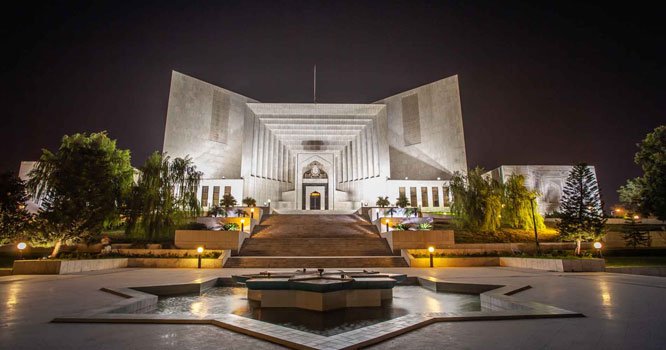Civil society activist Afiya Shehrbano Zia had filed a complaint in the SJC against former chief justice Mian Saqib Nisar.
Judges can face action even after resignation: Supreme Court. The Supreme Court of Pakistan has overturned a decision of its two-member bench and ruled that the Supreme Judicial Council (SJC) can take action against judges who resign during the proceedings of complaints or references against them.
The five-member larger bench, headed by Justice Aminuddin Khan, accepted the appeal of the federal government and announced the short verdict on Wednesday.
Civil society activist Afiya Shehrbano Zia had filed a complaint in the SJC against former chief justice Mian Saqib Nisar over an alleged breach of the judges’ code of conduct.
Earlier, a two-member bench of the Supreme Court, comprising the then Justice Ijaz-ul-Ahsan and Justice Sajjad Ali Shah, had given a verdict that no action could be taken against a judge who retires or resigns.
The federal government then filed a review petition in the Supreme Court, which was heard by a five-member bench. The bench reserved its judgment after hearing the arguments of both sides and later delivered a majority verdict of four to one in favour of the federal government.
More From FactFile: Why Supreme Court rejects report on Jaranwala vandalism?
The bench held that the SJC has the power to take action against judges who resign during the proceedings and that it is up to the SJC to decide whether to continue or drop the proceedings after the resignation. The bench also observed that the resignation of a judge does not affect the dignity and independence of the judiciary.
Justice Hassan Azhar Rizvi dissented from the majority verdict and said that the appeal was time-barred and should not have been entertained. He also said that the resignation of a judge is a personal matter and does not amount to misconduct.





